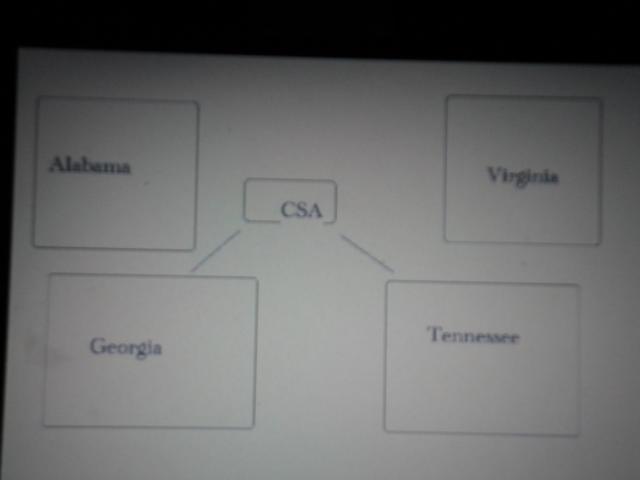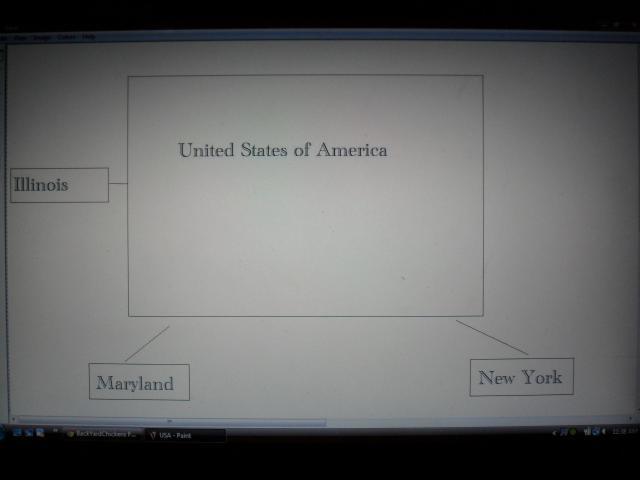Is WW2 that the war that made America a world power?
Navigation
Install the app
How to install the app on iOS
Follow along with the video below to see how to install our site as a web app on your home screen.
Note: This feature may not be available in some browsers.
More options
You are using an out of date browser. It may not display this or other websites correctly.
You should upgrade or use an alternative browser.
You should upgrade or use an alternative browser.
Hey Q9!!! Calling Q9!.....
- Thread starter redhen
- Start date
- Status
- Not open for further replies.
We are and were the only country to use nuclear in a war, that gained us some respect.
Quote:
Quote:
Quote:
--------------------------------
--------------------------------
John C. Calhoun :
The error is in the assumption that the General Government is a party to the constitutional compact. The States formed the compact, acting as sovereign and independent communities.
The error is in the assumption that the General Government is a party to the constitutional compact. The States formed the compact, acting as sovereign and independent communities.
The Bill or Rights said:
The powers not delegated to the United States by the Constitution, nor prohibited by it to the States, are reserved to the States respectively, or to the people.
Quote:
Quote:
Quote:
The powers not delegated to the United States by the Constitution, nor prohibited by it to the States, are reserved to the States respectively, or to the people.
Quote:
Quote:
Quote:
Alexander Stephens, Vice President of the Confederate States of America :
If centralism is ultimately to prevail; if our entire system of free Institutions as established by our common ancestors is to be subverted, and an Empire is to be established in their stead; if that is to be the last scene of the great tragic drama now being enacted: then, be assured, that we of the South will be acquitted, not only in our own consciences, but in the judgment of mankind, of all responsibility for so terrible a catastrophe, and from all guilt of so great a crime against humanity.
If centralism is ultimately to prevail; if our entire system of free Institutions as established by our common ancestors is to be subverted, and an Empire is to be established in their stead; if that is to be the last scene of the great tragic drama now being enacted: then, be assured, that we of the South will be acquitted, not only in our own consciences, but in the judgment of mankind, of all responsibility for so terrible a catastrophe, and from all guilt of so great a crime against humanity.
Last edited:
What the South needed was the very thing it was fighting against - a strong
central goverment. It's the "United" States of America....not the "independent"
States of America.
The federal government should have never gotten the power it has today... I agree they took states rights a bit too far for it to work well, but in every war the federal government gains power and they rarely relinquish it. I'll make a diagram of how this works in a second...
central goverment. It's the "United" States of America....not the "independent"
States of America.
The federal government should have never gotten the power it has today... I agree they took states rights a bit too far for it to work well, but in every war the federal government gains power and they rarely relinquish it. I'll make a diagram of how this works in a second...
Quote:
The federal government should have never gotten the power it has today... I agree they took states rights a bit too far for it to work well, but in every war the federal government gains power and they rarely relinquish it. I'll make a diagram of how this works in a second...
Oooh, diagrams!!!


The federal government should have never gotten the power it has today... I agree they took states rights a bit too far for it to work well, but in every war the federal government gains power and they rarely relinquish it. I'll make a diagram of how this works in a second...
Oooh, diagrams!!!


Diagram of the Confederate Government

Diagram of U.S. Government

Sorry about the horrible pics...

Diagram of U.S. Government

Sorry about the horrible pics...
Quote:
The federal government should have never gotten the power it has today... I agree they took states rights a bit too far for it to work well, but in every war the federal government gains power and they rarely relinquish it. I'll make a diagram of how this works in a second...
Oooh, diagrams!!!


I know fun to make and they look convincing.

The federal government should have never gotten the power it has today... I agree they took states rights a bit too far for it to work well, but in every war the federal government gains power and they rarely relinquish it. I'll make a diagram of how this works in a second...
Oooh, diagrams!!!


I know fun to make and they look convincing.

Quote:
Of course there were more nations - lots more. But those were the major powers involved. France was taken out during the war, though they did put up a good fight.
A strong central government... Yeah, right. It's been pointed out many a time that, first of all, a strong central government is more likely to abuse its power than a more local state government, and second of all that an abuse of power by the central government would be far more damaging than an abuse of power by state governments.
Mom's folly - so much in that post is completely ridiculous. You seriously think that the Confederacy, which could only launch effective DEFENSIVE campaigns, would have for some bizarre reason invaded and somehow conquered the United States?
President Davis summed it up this way - "All we ask is to be let alone."
Let's put this as simply as possible - which do you value more? Union, or liberty? I, for one, choose liberty. Union by voluntary agreement can aid liberty. Union at the point of a gun guarantees tyrrany. We live, not in the voluntary Union that the Founders created, but in the forced union established by the sword under the direction of Abraham Lincoln and the Radical Republicans.
Of course there were more nations - lots more. But those were the major powers involved. France was taken out during the war, though they did put up a good fight.
A strong central government... Yeah, right. It's been pointed out many a time that, first of all, a strong central government is more likely to abuse its power than a more local state government, and second of all that an abuse of power by the central government would be far more damaging than an abuse of power by state governments.
Mom's folly - so much in that post is completely ridiculous. You seriously think that the Confederacy, which could only launch effective DEFENSIVE campaigns, would have for some bizarre reason invaded and somehow conquered the United States?
President Davis summed it up this way - "All we ask is to be let alone."
Let's put this as simply as possible - which do you value more? Union, or liberty? I, for one, choose liberty. Union by voluntary agreement can aid liberty. Union at the point of a gun guarantees tyrrany. We live, not in the voluntary Union that the Founders created, but in the forced union established by the sword under the direction of Abraham Lincoln and the Radical Republicans.
TM question...
I believe you have cited five (5) quotes.
Can you please tell me where they came from? While I will
agree with you that they are posted all over the internet, I
am looking for a reference giving these EXACT quotes.
I am not sure that all "quotes" found on the internet as fact,
are indeed a fact.
Spook...
I believe you have cited five (5) quotes.
Can you please tell me where they came from? While I will
agree with you that they are posted all over the internet, I
am looking for a reference giving these EXACT quotes.
I am not sure that all "quotes" found on the internet as fact,
are indeed a fact.
Spook...
Quote:
--------------
Quote:
The bill of rights quote is, of course, from the bill of rights.
 The Joseph Story (who was a justice of the Supreme Court) quote is from his book, Commentaries on the Constitution of the United States. You can find it on page 191. The quote from Jefferson Davis can be found in edition 37 of The Spectator, a weekly magazine published in London in the year 1864.
The Joseph Story (who was a justice of the Supreme Court) quote is from his book, Commentaries on the Constitution of the United States. You can find it on page 191. The quote from Jefferson Davis can be found in edition 37 of The Spectator, a weekly magazine published in London in the year 1864.
I'm afraid I can't point to a reliable source for the rest.
 I've been collecting quotes from various history books and textbooks for a while, and I've been kinda sloppy at times in recording where they came from.
I've been collecting quotes from various history books and textbooks for a while, and I've been kinda sloppy at times in recording where they came from.

--------------
Quote:
The bill of rights quote is, of course, from the bill of rights.

I'm afraid I can't point to a reliable source for the rest.


- Status
- Not open for further replies.
New posts New threads Active threads
-
Latest threads
-
-
-
Anyone near Quitman, AR with chicks or hens?
- Started by Witchychickmama
- Replies: 0
-
-
-
-
Threads with more replies in the last 15 days
-
Question of the Day - Friday, February 13th, 2026
- Started by casportpony
- Replies: 93
-
-
-
-
-
×
